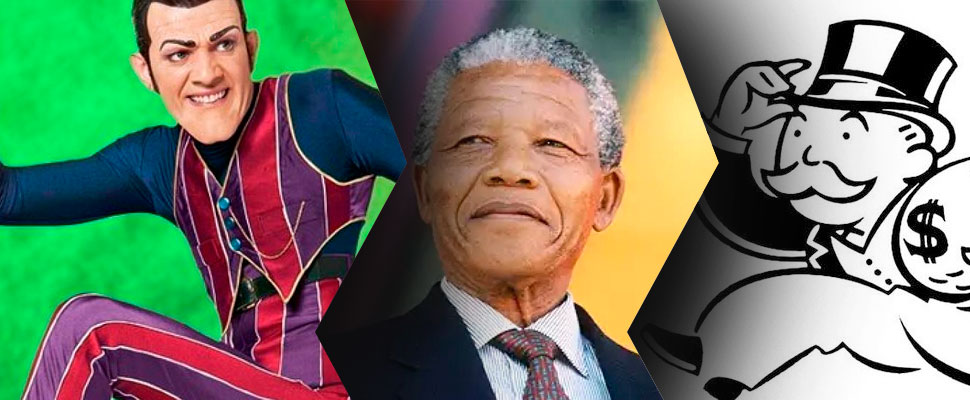Mandela effect: a false collective memory
Listen this article
The mandela effect refers to certain memories that are built within society, a collective memory about specific events that ended up being a lie

The big question is, why if they are a lie, most people, if not all, believe that it is true. The theory, created in 2010, says that it is possible that there is a parallel reality where what we believed is true, and that that reality sometimes mixes with ours. This theory says that, according to the laws of the quantum universe, there are different realities that are happenning at the same time. However, sometimes these realities cross each other, creating collective memories that do not exist in our reality.
Leer en español: Efecto mandela: una falsa memoria colectiva
To understand a little more, we explain some cases of the Mandela effect with which, for sure, you will be surprised.
Deaths
- Nelson Mandela: Perhaps the most important, and by which the name of the theory arises. Although this theory has been discussed since 2010, it was in 2013 that there was a greater impact when Nelson Mandela died. At the time of his death, on social media there was a wave of bewilderment, as many people believed that the South African leader was already dead.
Many claimed to remember that Mandela had died while in prison, and they even remembered the funeral being broadcast and having seen it "with their own eyes". It's easy to say that it did not happen that way and that's it, but then, why do so many people believe that he died before? - Robbie Rotten: the actor who played the villain of the children's program Lazy Town fell ill with cancer several years ago. According to what was believed, his illness had worsened and he died. However, in August 2018 he actually died. Although it can be seen as another case of "fake news", it is considered as another case of the Mandela effect, because it is not possible to find the false news that went viral years ago, as if it had never happened .
Films
The Mandela effect has also been seen in several movies, where very small changes occur in the dialogues, but which change the meaning of what we believed.
One of the most discussed examples is Snow White. In the film, the witch speaks with a mirror to the one she asks about her beauty. "Mirror, mirror, who is in this kingdom the most beautiful?" However, the phrase "mirror, mirror" is never said in the movie, although the collective belief is it happened.
Actually the witch says "magic mirror". This detail, although small, changes the universal belief. A belief so great that there are even other contemporary films based on it, which are called "Mirror, Mirror".
Another movie where something similar happens is Star Wars. The famous scene in which Darth Vader confesses to Luke that he is his father, the general belief is that the phrase says "Luke, I am your father". This phrase turns out to be famous worldwide, even someone with little knowledgeable of the saga recognizes it. However, the phrase actually goes: "No, I am your father".
Read also: From animation to reality: Why is Disney making live-action remakes?
Cartoons
Cartoons, logos, and advertising pieces have also been victims of the Mandela effect.
Among them, Uncle Sam, the propaganda par excellence of the war in the United States. If you were wondering what colors make up this character's hat, many would respond something related to the country's flag: a blue band with stars, and white and red perpendicular stripes. Well, it's not like that. Actually the hat has a blue band with some stars, but the rest of the hat is totally white. However, costumes, cartoons, drawings and souvenirs show it as the first description.
The Monopoly board game character is also a point of discussion in the Mandela effect. When we think about him, we remember a man with a hat, a mustache, and a monocle. The reality is that this character has never had a monocle. Although in its multiple versions several details have changed, such as colors, pose and some accessories like a cane, the man has never worn a monocle.
These are just some of the examples of this theory that tries to explain the parallel universes. What about you, did you believe any of this?
LatinAmerican Post | Juliana Suárez
Translated from "Efecto mandela: una falsa memoria colectiva"





